Dental implants have become an essential solution for missing teeth, and two popular choices among patients are Korean and German dental implants. Both options offer unique advantages in terms of materials, lifespan, and suitability for different patient groups. This article provides a detailed comparison to help you decide which option is best suited for your dental needs.
Table of contents
Material Comparison Between Korean and German Dental Implants
The success and durability of dental implants are heavily influenced by the materials used. Both Korean and German implants use high-quality materials, but there are some key differences.
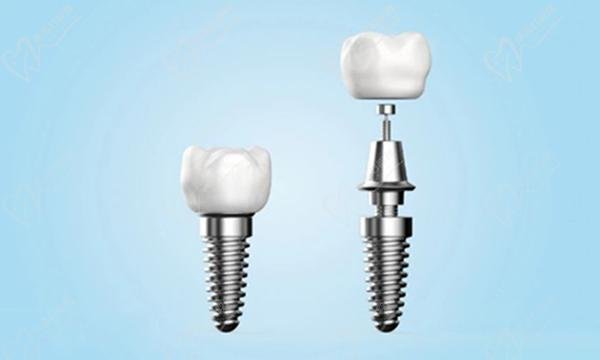
Korean Dental Implant Materials
Korean dental implants are typically made from high-strength titanium alloys. Titanium is known for its excellent biocompatibility, meaning it integrates well with human bone tissue. Popular Korean brands, such as Neobiotech and Osstem, use advanced surface treatment technologies that improve implant stability and accelerate healing. The price of a Neobiotech implant is about 2,980 CNY per tooth, and Osstem offers similar pricing, making these implants more affordable than some alternatives.
German Dental Implant Materials
German dental implants, on the other hand, are renowned for their precision and craftsmanship. They often use pure titanium or specially treated titanium alloys, which offer higher biocompatibility and strength. Brands like Wieland and Zirkonzahn have established a reputation for high quality, with the price of a Wieland implant starting at around 2,500 CNY per tooth, and Zirkonzahn implants priced at 3,600 CNY. Though German implants are more expensive, they are known for their superior durability and long-term success.
Material Comparison Summary
Korean dental implants are cost-effective and reliable for those seeking good results on a budget, while German dental implants offer premium materials and craftsmanship, making them ideal for patients who prioritize long-term quality.
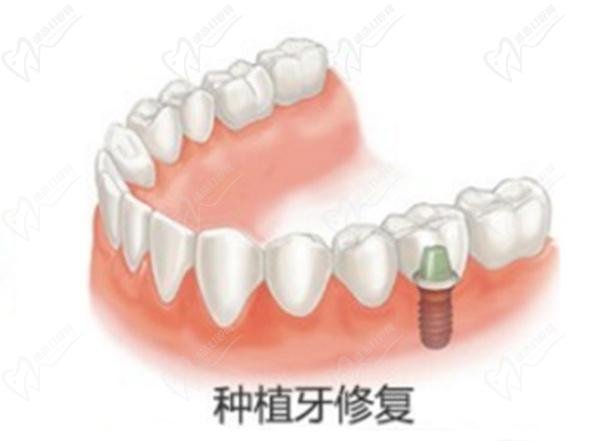
Lifespan Comparison: Korean vs. German Dental Implants
The lifespan of dental implants is a critical factor when making a decision. Both Korean and German implants can last for many years, but their durability depends on various factors.
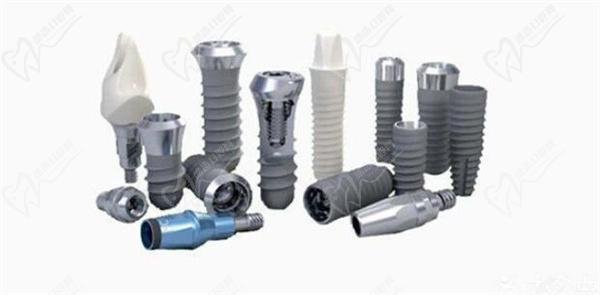
Lifespan of Korean Dental Implants
Korean dental implants typically last between 10 and 15 years. The longevity of these implants is influenced by the patient’s oral hygiene practices, regular dental checkups, and overall health. With proper care and maintenance, the lifespan of Korean implants can be extended. The relatively lower cost of these implants makes them appealing to younger patients or those seeking affordable, quality dental care.
Lifespan of German Dental Implants
German dental implants are known for their exceptional durability, often lasting 15 years or more. In some cases, patients have reported that their implants have remained functional for over 20 years. Thanks to the superior materials and advanced manufacturing techniques, German implants tend to offer better bone integration and stability, contributing to their extended lifespan. Despite their higher upfront cost, they offer greater value in the long run.
Lifespan Comparison Summary
German dental implants generally have a longer lifespan compared to Korean implants. They are an excellent choice for patients looking to invest in their oral health for the long term, while Korean implants provide an affordable solution for those with more immediate needs.

Who Should Choose Korean or German Dental Implants?
Different patient groups may benefit from choosing either Korean or German dental implants based on their unique needs and circumstances.
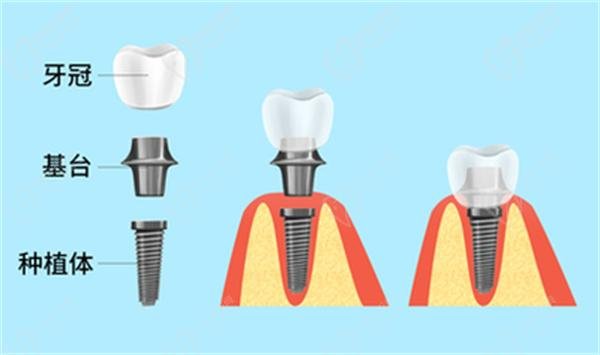
Who Should Choose Korean Dental Implants?
Korean dental implants are ideal for:
- Younger Patients: Many young individuals looking for an affordable solution to tooth loss often choose Korean implants. These implants offer good results without the high price tag.
- Budget-Conscious Patients: Patients seeking high-quality dental solutions at a lower cost will find Korean implants to be a cost-effective option.
- Patients Needing Multiple Implants: The affordability of Korean implants makes them an attractive option for those requiring multiple implants, as it helps reduce overall treatment costs.
Who Should Choose German Dental Implants?
German dental implants are better suited for:
- High-End Patients: Those with a high emphasis on quality and willing to pay for the best possible results, such as middle-aged and elderly patients or professionals, will appreciate the craftsmanship of German implants.
- Patients with Special Needs: If a patient requires complex dental procedures or has unique medical conditions, the advanced technology and higher precision of German implants provide greater reliability.
- Long-Term Health Investors: Patients seeking to invest in long-term dental health will benefit from the extended lifespan and durability of German implants.
Suitability Summary
Korean implants are great for patients on a budget or those seeking a quick solution, while German implants are best for individuals looking for long-term reliability and superior quality.

Technical Excellence and Service Quality
The success of dental implants doesn’t solely depend on the materials used; the expertise of the medical team and the level of care provided are equally important.
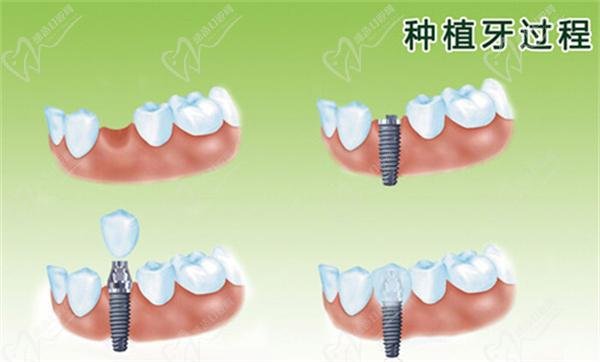
Technical and Service Excellence in Korean Dental Implants
In recent years, Korean dental technology has advanced significantly. Many clinics in Korea now offer high-end equipment and services, with well-trained dentists capable of performing complex procedures like immediate implant placement and minimally invasive surgeries. For instance, Dr. Jung-tae from Saif Dental Clinic is known for his expertise in advanced implant techniques.
Korean clinics also emphasize post-operative care, providing detailed follow-up services to ensure smooth recovery and implant success.
Technical and Service Excellence in German Dental Implants
Germany is renowned for its rigorous medical standards and advanced healthcare system. German dental surgeons undergo extensive training and certification, ensuring that they are highly skilled in performing implant procedures. Clinics are equipped with cutting-edge technology, allowing for precise and minimally invasive surgeries that offer greater safety and comfort.
German clinics also excel in patient communication and post-operative support, ensuring that patients receive comprehensive care before, during, and after surgery.
Technical and Service Summary
Korean dental clinics offer flexibility and fast response times, making them suitable for patients who prioritize quick and efficient treatment. German clinics provide a more rigorous approach with a focus on precision and long-term care, ideal for patients seeking the highest standards of dental care.
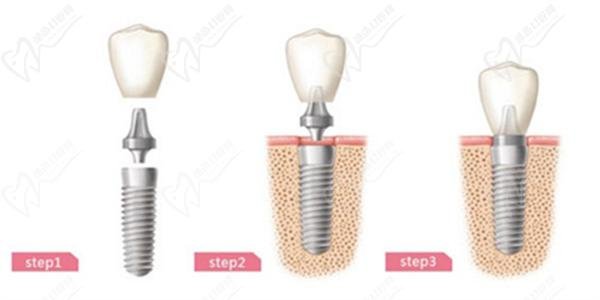
Conclusion: Making the Right Choice Between Korean and German Dental Implants
After comparing Korean and German dental implants across various factors such as materials, lifespan, and suitability, here’s what we can conclude:
- Material: Korean implants are more affordable, while German implants are crafted from premium materials with superior durability.
- Lifespan: German implants last longer, making them ideal for those seeking a long-term investment in their oral health.
- Suitability: Korean implants are perfect for younger or budget-conscious patients, while German implants suit those seeking high-quality, long-lasting solutions.
- Technical Expertise: Both countries offer excellent dental technology, but German clinics focus more on precision and thorough patient care.

Choosing between Korean and German dental implants depends on your budget, long-term health goals, and treatment expectations. Regardless of which option you choose, ensure that you consult with your dentist and understand the benefits and limitations of each type before making a decision.
